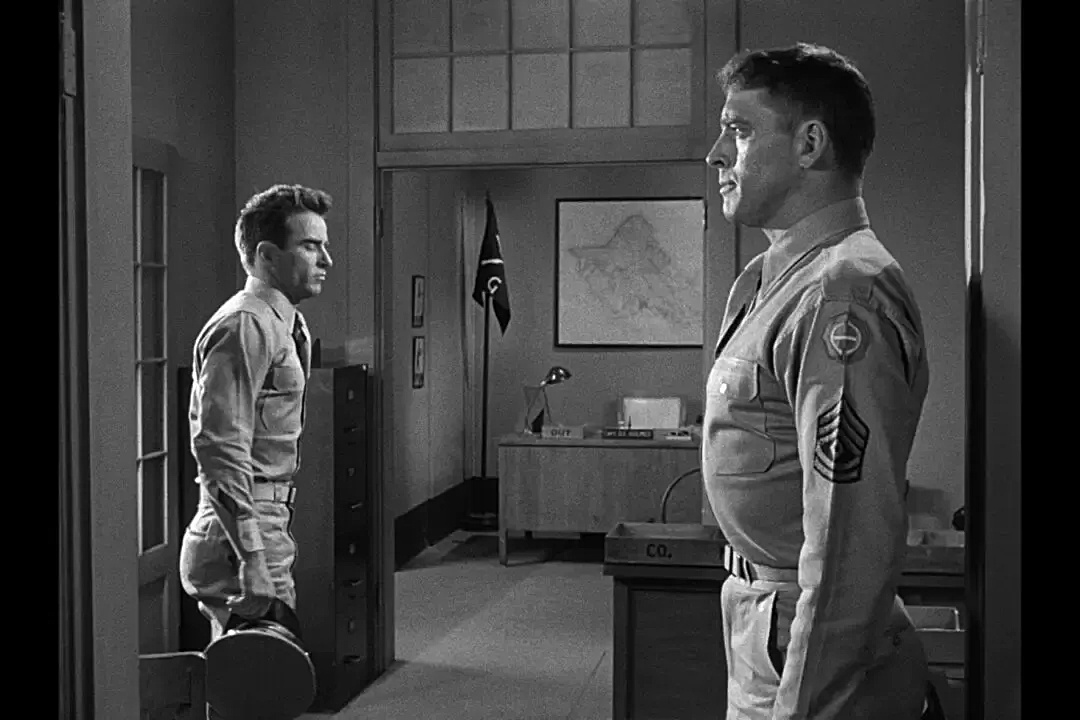In the world of cinema, there are certain movies that are so perfectly cast that it’s hard to imagine anyone else in the roles. Coupled with stunning cinematography, these performances create iconic images that become etched into the cultural memory.
One of these unforgettable frames is from the 1955 film “The Seven Year Itch,” which has come to define Marilyn Monroe’s allure and charm. It captures both the lighthearted and sensual essence of her screen presence.
Similarly, the chilling scene from 1972’s “The Godfather” with Don Vito Corleone (played by Marlon Brando) seated sternly, eyes forward, while the Sicilian undertaker Amerigo Bonasera (played by Salvatore Corsitto) whispers in his ear, encapsulates the quiet power and commanding presence of Brando’s character.
Another enduring and iconic image is from the 1953 film “From Here to Eternity” featuring Burt Lancaster and Deborah Kerr lying on the sand as the waves wash over them. Adapted from James Jones’ novel by screenwriter Daniel Taradash, this single frame captures the romance and intensity of the film.
The story is set at Schofield Barracks on the island of Oahu, Hawaii, where Pvt. Robert E. Lee Prewitt (played by Montgomery Clift) reports for duty at his new post. Prewitt, a former top bugler in his previous unit in Honolulu, was transferred after being replaced by a bugler with lesser skills. This incident has wounded his pride and sense of fairness.

Upon arrival, Prewitt encounters the tough and experienced Sgt. Milton Warden (played by Burt Lancaster), the highest-ranking enlisted man in the unit. Warden quickly assesses Prewitt as a stubborn individual.
Prewitt meets the ambitious company commander, Capt. Dana Holmes (played by Philip Ober), who has his eyes set on promotion. Holmes’ success relies on his company’s performance in the upcoming division boxing championship, and he has managed to get Prewitt, who possesses boxing skills, assigned to his infantry unit to increase their chances of winning.
There’s only one problem: Prewitt has sworn off boxing after accidentally blinding a friend and fellow boxer during practice. Instead, he aspires to be the top bugler of his company.
Due to Prewitt’s refusal to box for the unit, he faces harsh treatment from his fellow soldiers and is burdened with extra duties, despite excelling as a soldier. Pvt. Angelo Maggio (played by Frank Sinatra), an old acquaintance already serving in the unit, offers him support, and the two quickly form a strong bond.
Although Burt Lancaster receives top billing, the film’s narrative primarily revolves around Clift’s portrayal of Prewitt, who struggles to uphold his principles in the face of immense pressure. Lancaster’s character, Warden, is equally compelling and faces his own risks as he engages in a dangerous affair with Holmes’ wife Karen (played by Deborah Kerr), a woman known for her infidelities. Warden’s actions put him at risk of discovery by the military police, with possible consequences of a 20-year sentence in Leavenworth (a military prison).
Donna Reed appears early on as Lorene, a charming hostess at a social club. Her budding relationship with Prewitt is marked by challenges. Reed excels in her portrayal of a young woman who, despite entertaining soldiers at the club, envisions a more conventional married life.

Lancaster and Kerr deliver powerful performances as star-crossed lovers whose romance is doomed by their circumstances. Warden, tired of being Holmes’ glorified secretary (with Holmes frequently seeking favor from senior officers), yearns to transfer out of the unit. Karen is trapped in a loveless marriage to Holmes, who is both her husband and Warden’s company commander.
The film makes it clear that infidelity, although rooted in Karen’s feelings of neglect, is never justifiable. The affair is depicted as a source of inevitable trouble, portraying the consequences of their morally questionable choices.
A secondary but memorable subplot revolves around the lively and likable Maggio, whose personality clashes with the brutal Sgt. Fatso Judson (played by Ernest Borgnine). Their mutual animosity, intensified by Maggio’s excessive drinking, escalates into a near-violent confrontation. Warden intervenes to prevent bloodshed, but Judson, who runs the stockade, ominously warns Maggio that it’s only a matter of time before he ends up there, and when that happens, Judson will be waiting.
“From Here to Eternity” delivers a compelling narrative and exceptional performances, justifying its eight Academy Awards, including Best Picture, and five additional nominations. The film portrays the grittiness of military life, demonstrating that the struggles and flaws of service members are as complex as those in civilian society.

Instead of presenting idealized characters, the film showcases individuals with flaws, such as Holmes’ selfish ambition, Karen’s infidelity, and Judson’s cruelty. However, acts of selflessness and heroism also shine through, creating a well-balanced and engrossing story with both cautionary and uplifting elements.

